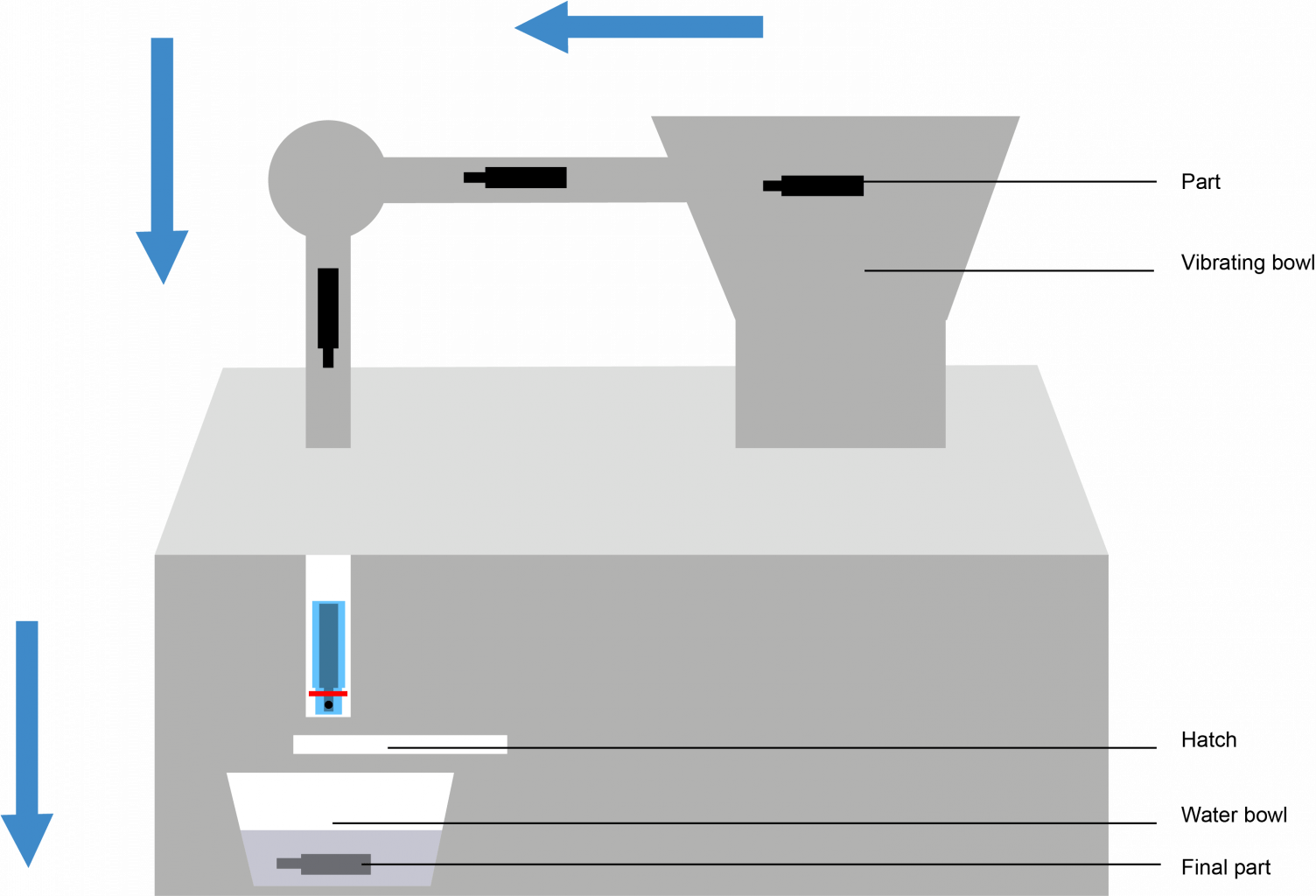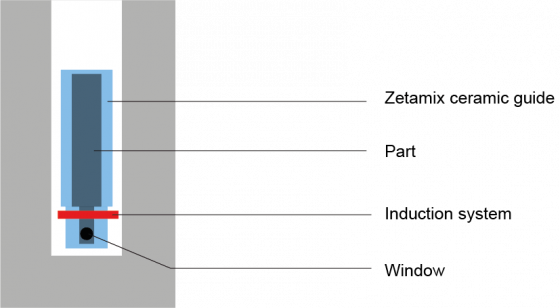
MGB is a french company established in 1956 and specialized in the manufacturing of precision screws made by bar turning.
Today, MGB is a worldwide group present not only in Europe but also in China and the USA. MGB provides precision screws to a wide range of valuable industries such as for electronics, the biomedical field, or the aerospace. Because all these fields require the best from their commercial partners, the quality of its products is a priority for MGB group: The company is committed to further improve the quality of precision screws by innovating and improving their production processes.
The need: electrical insulator and high temperature resistance
To fulfill one of their clients’ needs, MGB produces precision screws with different levels of hardness: the top of the part has to show high toughness whereas the bottom has to be less hard.
To reach this goal, they have to anneal only one part of the screw thanks to an induction system. Moreover, to keep good pace, the process must be automatized. Thus, the company is using a specific machine that anneals parts one by one thanks to a clever mechanism:

Parts are fed in a vibrating bowl and are placed in the right direction thanks to a selector, then, go down a tube to the ceramic guide. Once the part is placed in the ceramic guide, an inductor heats up the part to reach the correct hardness while a heat detector is monitoring the temperature. Finally, the hatch is opened and the part is quenched in water in order to stop the heat from spreading to the rest of the part.

This process seems to be a well-oiled machine, but the ceramic holder is not that easy to get. Indeed, this part is very complex because it has exactly the shape of the final part and need to be punched to make the temperature monitoring possible. Above all, this holder has to both be an electrical and a heat resistant: only alumina can fulfill these two conditions but it is far from being easy to produce.
The solution: 3D printing
Zetamix is then a perfect solution: the alumina filament allows to reach the properties requirement straightforwardly. Moreover, thank to 3D printing, complex parts are no longer tricky to produce in ceramic. Last but not least, this process of fabrication allows MGB to save time: Outsourcing this part would take months, particularly if MGB has to try different shapes of windows for the temperature checking. Getting the right shape the first time is almost impossible, and several designs have to go back and forth between MGB and the outsourcer before finding the good one. Thus, solving this kind of issue is one of the most valuable advantages of 3D printing: by reinternalizing the process, make a new design and produce a new part takes less than a week.